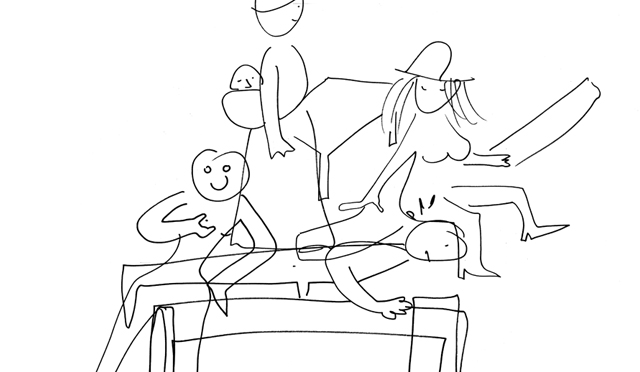Search
To search for an exact match, type the word or phrase you want in quotation marks.
A*DESK has been offering since 2002 contents about criticism and contemporary art. A*DESK has become consolidated thanks to all those who have believed in the project, all those who have followed us, debating, participating and collaborating. Many people have collaborated with A*DESK, and continue to do so. Their efforts, knowledge and belief in the project are what make it grow internationally. At A*DESK we have also generated work for over one hundred professionals in culture, from small collaborations with reviews and classes, to more prolonged and intense collaborations.
At A*DESK we believe in the need for free and universal access to culture and knowledge. We want to carry on being independent, remaining open to more ideas and opinions. If you believe in A*DESK, we need your backing to be able to continue. You can now participate in the project by supporting it. You can choose how much you want to contribute to the project.
You can decide how much you want to bring to the project.
At the beginning of the month we said that the passing of time is something we are concerned with. We also said that thought, happenings, the event, are causes, symptoms or excuses for a line that doesn’t advance in the same way it depends upon from where you look at it. So, the theme of April consequently revolved around temporality in a chronological sense, “the timeline”, placed in confrontation with a more geographical temporality. Each context can have different lines, sometimes they are parallel, sometimes in contact and at others in total discordance. Although it might seem a wild association the relations between temporality and civilization (collectives – societies – communities, etc.) are incredible, even more so when we situate them in an artistic context of reference.
From the point of view of those who never had priority regarding the point of focus, Aymara Arreaza writes “Operating without anaesthetic” in which she doesn’t just expose in broad strokes the urgency of this change of perspective, so much as also contributes “current” examples that suffer the practices of “historical” domination. If we cast an eye over pages of the newspapers from the last few weeks, it’s not hard to understand that “the supremacy of certain nationalities, languages and identities, often considered in racial terms, one comes to realise the way in which from the colonial story certain forms of actuation are imposed over others” and this isn’t just in art and culture, so much as is also, and in particular beyond it.
Marina Vives writes about Prophetia, also a current topic, one it could be said is more current than ever despite the fact that its ‘history’ can be traced back to Greek mythology, the exhibition curated by Imma Prieto in the Fundació Miró. This searches precisely to talk through the language of “art” of political, social and economic themes, subjects that concern us and are questioned in contemporary society; themes that affect us directly in the context of peripheral Europe in which the exhibition is developed.
On her part Anna Dot interviewed Andrea Valdés and David Bestué in relation to their project La línea sin fin, a collection of six publications. With the intention of observing their most immediate context they manage to generate new narratives, transcending a history exploited on the one hand by “Catalans”. The Línea sin fin is a project that carries out an exercise in free relations, in which various collaborators have been included, to think without complexes but with a certain humour, about the reality of their identity. Something similar to what we’ve been trying to do at A*DESK for a while now, such as when we decided to talk in a magazine about the “catalan question” desde el mundo de la cultura contemporánea.
And continuing along the timelines we have traced in April, what better way to end than where this leads us, the future. Juanjo Santos signs “The art of the future”, in which he revises the different practices, past and present, that want, seek or desire to “reach completion” in a future that perhaps many of us (not even the actual artists) will reach; perhaps calling into question this shock of communities, not from a point of view that is geographical, past or simultaneous, so much as inter-temporal.

A*DESK is a critical platform focused on publishing, training, experimentation, communication and dissemination in relation to contemporary culture and art, which is defined by transversality. The starting point is contemporary art, because that is where we come from and this awareness allows us to go much further, to incorporate other disciplines and forms of thought in order debate issues that are relevant and urgent for understanding our present.
"A desk is a dangerous place from which to watch the world" (John Le Carré)